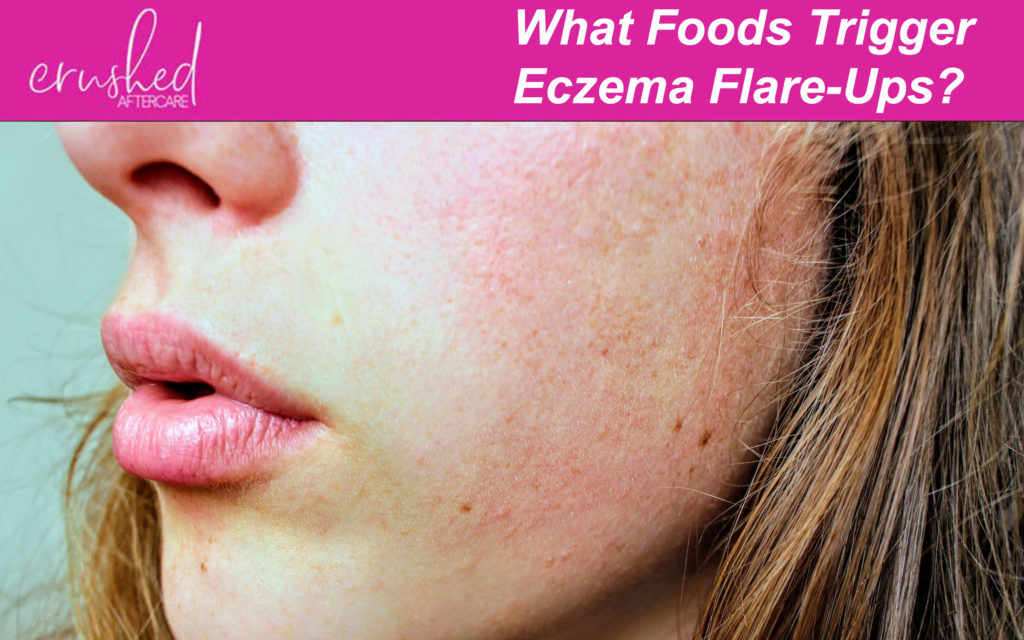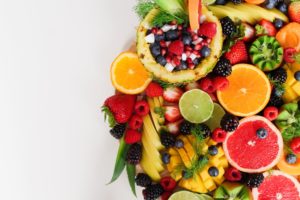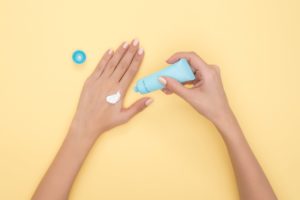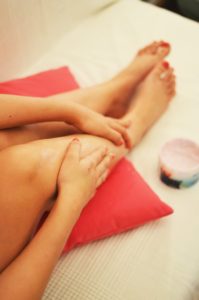
Eczema Flare-Ups, Foods and Healing Balms
Eczema doesn’t have to prevent a client from getting the tattoo or semi-permanent make-up (SPM) they want. However, the skin inflammation caused by eczema can interfere with proper healing. Flare-ups must be contained both before and after a tattoo appointment or SPM treatment. Even if the client has the condition under control when they come in for their appointment, trauma to the skin can cause eczema symptoms to recur.
The best way to treat inflammation in the body is through natural healing. By using an aftercare balm made with wholesome ingredients and focusing on their diet, the client can prevent their eczema from harming skin that is still healing!
Foods That Trigger Eczema
Many foods trick the body into thinking there are threats to your health, causing it to release T-cells and antibodies to attack this nonexistent threat. This release is the cause of inflammatory responses like eczema. The food categories that cause this inflammation can be quite broad, but avoiding them during the healing of a tattoo or SPM treatment can be quite easy!
While triggers are not the same for everyone, these are the foods many eczema sufferers have the most problems with:
- Citrus and other acidic fruits
- Dairy
- Eggs
- Gluten found in wheat and other grains
- Nuts
- Refined Sugars
- Soy
- Tomatoes
 Frequent consumers of these foods who take care to treat eczema after should still watch their diets following an appointment. The skin is particularly sensitive after a tattoo or SPM treatment, and it isn’t always safe to use a medicated ointment on the treated area.
Frequent consumers of these foods who take care to treat eczema after should still watch their diets following an appointment. The skin is particularly sensitive after a tattoo or SPM treatment, and it isn’t always safe to use a medicated ointment on the treated area.
What Foods Should They Consume?
To counter these dietary restrictions, clients can supplement their diet with food that is naturally anti-inflammatory. These include:
- Fatty fish: These include salmon, tuna, mackerel, sardines, and herring. Fish is a natural source of omega-3 fatty acids and can fight inflammation to reduce eczema symptoms.
- Probiotics: These promote good gut health by killing bad bacteria that can cause inflammation. Natural probiotic foods include active culture yogurts and kefirs, sauerkraut, and tempeh. Clients can also take probiotic supplements, but they should talk with a specialist before doing so.
- Flavonoids: These are plant antioxidants that reduce the production of inflammatory antibodies. Colourful fruits and vegetables that are packed with flavonoids include apples, broccoli, cherries, spinach, and kale.
Clients with eczema might find that tattoos and SPMs trigger their symptoms. Before the treatment, they should ensure that the skin is fully healed from past flare-ups, or that the application is not in an area severely affected in the past. The client should also use an aftercare product that won’t cause flare-ups. In the consultation, you can recommend that they follow the preceding dietary restrictions in the weeks leading up to the appointment. This will ensure that the client feels completely comfortable and ready!







